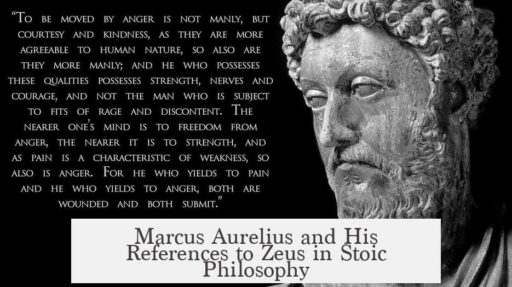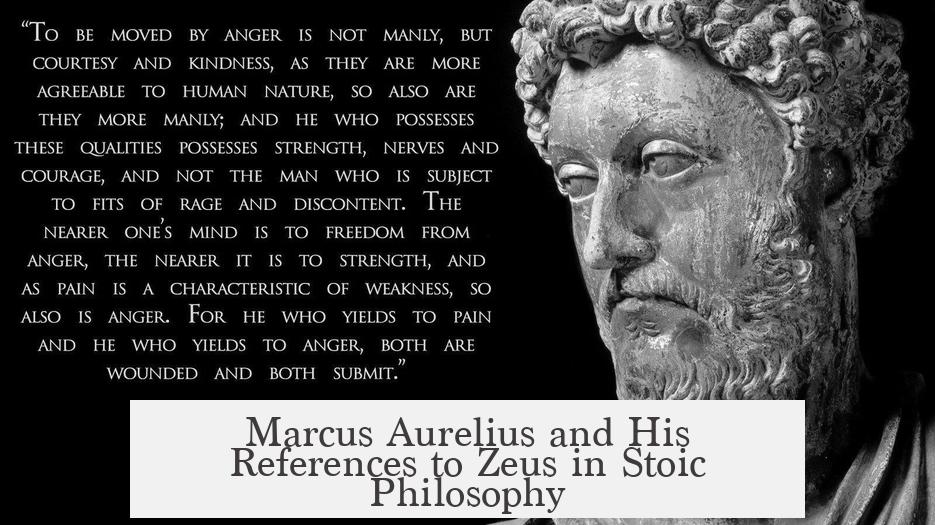Marcus Aurelius, though a Roman emperor, mentions Zeus in his writings because he composed his seminal work, Meditations, in Greek, where Zeus is the equivalent of the Roman god Jupiter. Greek was the preferred language for educated Romans, especially those interested in philosophy, making it natural for Marcus to use Greek terminology. Zeus, in Greek mythology, corresponds directly to Jupiter in Roman tradition. This connection stems from the syncretic blending of Greek and Roman cultures, where the gods were often identified with each other.
Marcus Aurelius wrote Meditations in Greek, viewing it as the language of high culture and philosophy. Educated Romans learned Greek as a second language, particularly because much philosophical literature originated within Greek language and culture. Using Greek was similar to how many writers today use English to engage with global or technical subjects. So, Marcus’s mentions of Zeus reflect his linguistic choice rather than a cultural or religious shift.
This linguistic preference means references to Zeus in Meditations are not anomalies but expected, given that the Greek word for Jupiter is Zeus. Since Roman religion and Greek mythology often matched their deities, the two names describe the same divine figure: the king of gods, ruler over the sky. Both Jupiter and Zeus share a common Indo-European ancestor, *Dyḗus ph2tḗr*, often translated as “Father Sky.” Their names are linguistic cognates, meaning they derive from the same root word but in different languages.
The cultural blending after the Roman Empire’s expansion into Greek territories reinforced this identification of Jupiter and Zeus. The two gods became essentially synonymous as symbols of divine authority and cosmic power. Marcus Aurelius’s use of “Zeus” fits into this cultural and linguistic context and indicates his philosophical outlook rather than a strict religious alignment.
In the Stoic philosophy Marcus embraced, Zeus transcends his traditional image as a thunder-wielding deity. Instead, Zeus represents a cosmic force sustaining universal order. This meaning aligns with Stoicism, which emphasizes living in harmony with nature and reason governing the cosmos. Marcus references Zeus to symbolize the rational structure behind all events, including human suffering, urging acceptance because everything contributes to the universe’s health and prosperity.
This wide-ranging use of Zeus in Stoic thought differs from the mythological figure with a beard and lightning bolts. Marcus’s Zeus is more abstract—a principle or force that holds everything together. However, it remains unclear whether the figure of Jupiter could fully replace Zeus within this philosophical framework since philosophical Zeus carries specific Stoic connotations.
| Aspect | Explanation |
|---|---|
| Language of Meditations | Written in Greek by Marcus Aurelius, Greek was used as language of philosophy by educated Romans. |
| Greek and Roman Gods | Zeus (Greek) and Jupiter (Roman) essentially represent the same deity with common Indo-European roots. |
| Philosophical Context | Zeus in Stoicism is the cosmic force ordering the universe, beyond mythological thunder god imagery. |
Marcus Aurelius’s writings demonstrate how Greek culture and language permeated Roman elite thought. His references to Zeus are natural and appropriate within the context of philosophical discourse and linguistic tradition.
Additionally, Marcus’s dual identity—as a Roman emperor and Stoic philosopher—influenced his choice to employ the Greek language and terminology. He aimed to express ideas about universal reason and order, concepts deeply rooted in Greek philosophical traditions. Using “Zeus” aligns with this goal, connecting his Stoic worldview to the broader intellectual heritage.
- Marcus Aurelius wrote in Greek, making Zeus the linguistic equivalent of the Roman Jupiter.
- Greek was the language of philosophy for educated Romans like Marcus.
- Zeus and Jupiter represent the same god, sharing Indo-European origins.
- In Stoicism, Zeus symbolizes the cosmic law and order sustaining the universe.
- References to Zeus reflect Marcus’s philosophical perspective rather than religious worship.




